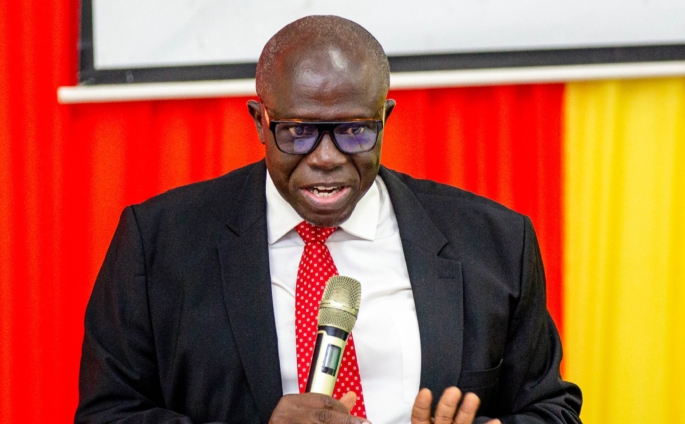Prof. Justice Sir Dennis Dominic Adjei, judge of the African Court and Justice of the Court of Appeal wants Ghana to make social media offences universal.
He believes the country can enter into treaties to make it possible for social media offenders abroad to be extradited to the country.
“The State should make some of the offences committed on social media universal offences. If it is a universal offence, irrespective of where it is permitted, you can be arrested and prosecuted. Those who commit those outside the jurisdiction should be dealt with in Ghana.
“The State should lobby for treaties that would make some of the offences on disclosure of information on national security, protection of health and morals, and territorial integrity or public safety extraditable to enable her to get the audience living abroad who openly object to the offences committed on social media. Those offences extradited to Ghana to face prosecution,” he explained.
The innovation around social media has been transformative over the years. It has transformed the way people exercise their freedom of speech and communicate.
However, there has been a number of destructions from social media which appear to outweigh the positives.
Excessive addiction, use of social media, lack of guidance and irresponsible use of social media leads to several consequences including cyber bullying.
It is the reason KNUST Faculty of Law eminent legal scholars and lawyers public lecture series decided to address the freedom of expression and its consequences in the era of social media in its 5th annual conference featuring Prof. Justice Sir Dennis Dominic Adjei.
The provost of the College of Humanities and Social Sciences, Prof. Charles Ofosu Marfo on behalf of the Vice Chancellor of the university, advised stakeholders and institutions to make an effort to curb this menace.
“As social media becomes more interwoven with educational practices. Institutions require strong strategies to guarantee their social media use complies with the legitimate educational aims.
“Parents, teachers and educational institutions and government have a vital role in leading society towards responsible usage and digital citizenship by establishing clear standards and policies which will apply expectations for stakeholders to guarantee a responsible ethical use of social media,” he said.
The Dean of the Faculty of Law, Dr. Chris Adomako-Kwakye cautioned the participants to be careful so as to avoid any unpleasant legal consequences.
"Social media is a space for people to connect with each other through the internet. Any information released is disseminated in a split second. It is therefore important to navigate social media cautiously and be mindful of its traps," he warns.
Latest Stories
-
Retain Afenyo-Markin as NPP leader, he has experience – Deputy Speaker
11 minutes -
Kufuor didn’t leave behind a strong economy – Fifi Kwetey
14 minutes -
It won’t be business as usual, remain humble – Fifi Kwetey to party members
1 hour -
Ebenezer Ahumah Djietror appointed as new Clerk to Parliament
2 hours -
Actress Benyiwaa of ‘Efiewura’ TV series dead
2 hours -
Ashanti Regional Chief Imam dies at age 74
3 hours -
Africa Arts Network calls for tax reform to save Ghana’s theatre industry
3 hours -
SSTN Ghana Chapter reaffirms commitment to economic growth under new leadership
3 hours -
Inlaks strengthens leadership team with key appointments to drive growth across sub-Saharan Africa
4 hours -
Green Financing: What Ghana’s Eco-startups need to know
4 hours -
CHAN Qualifiers: Amoah confident of beating Nigeria
4 hours -
Governments deprioritising health spending – WHO
4 hours -
Lordina Foundation brings Christmas joy to orphans
4 hours -
Yvonne Chaka Chaka to headline ‘The African Festival’ this December
4 hours -
Nigerian man promised pardon after 10 years on death row for stealing hens
4 hours

